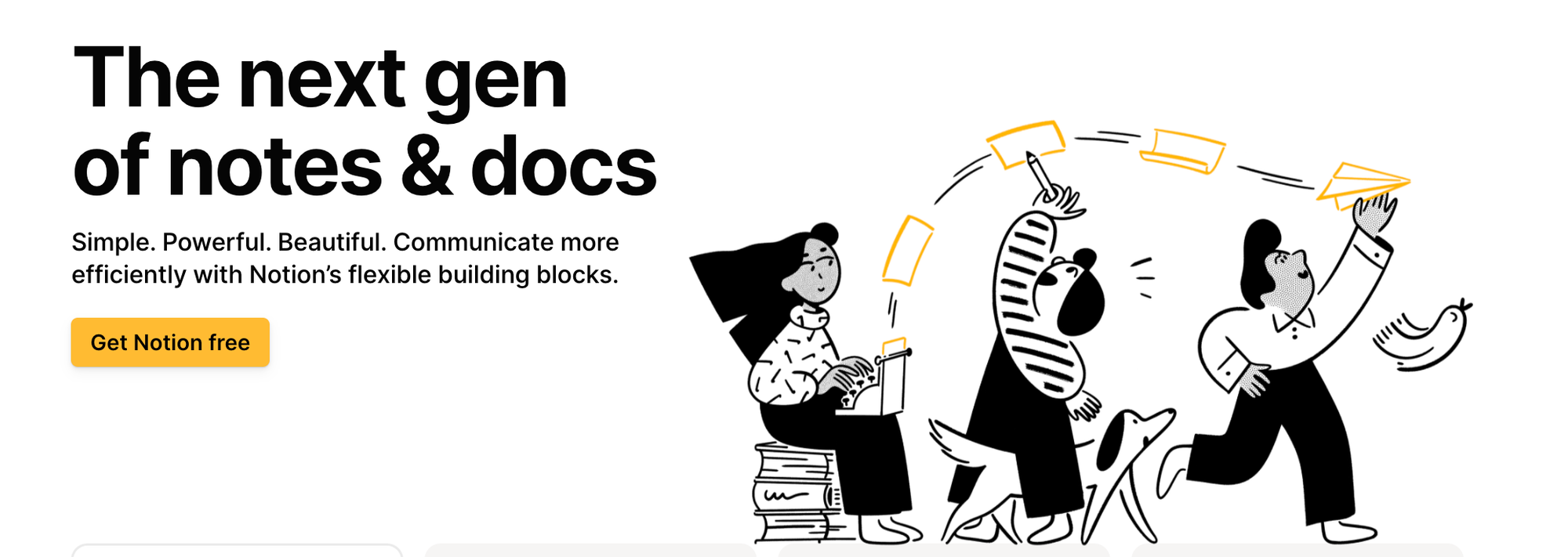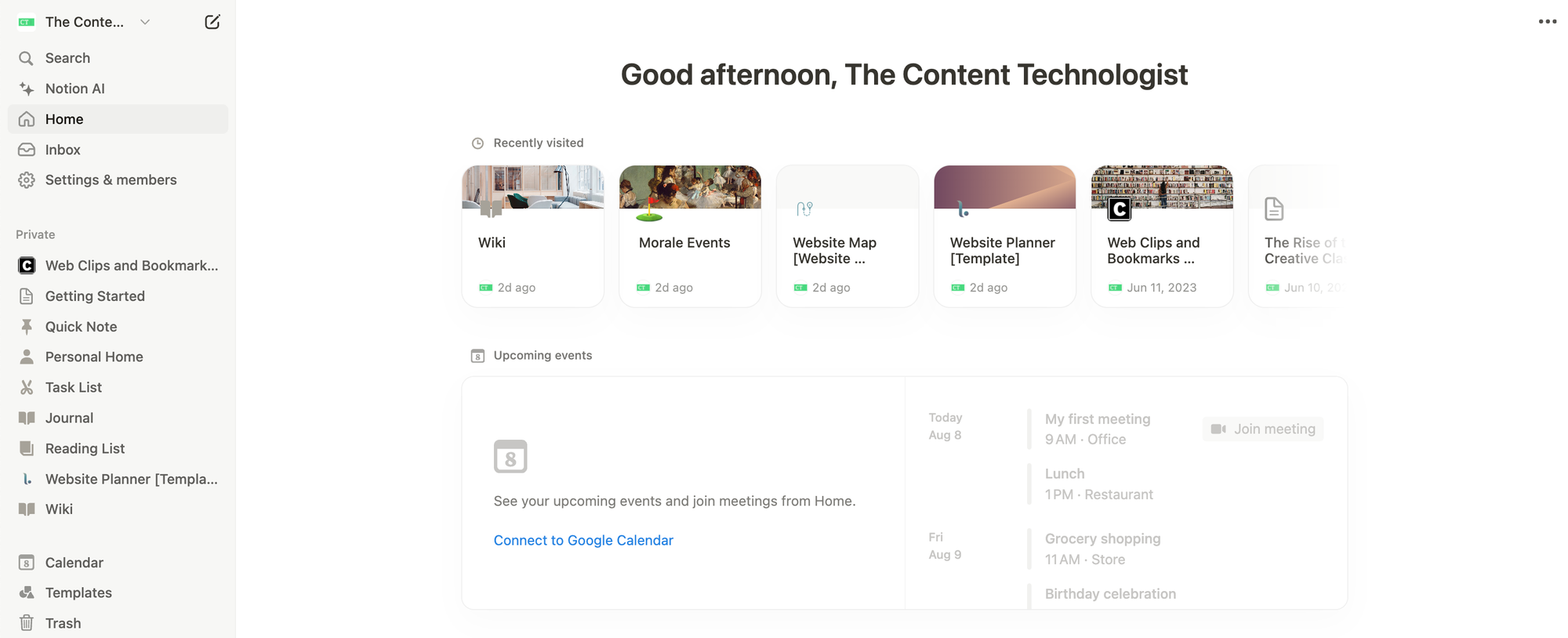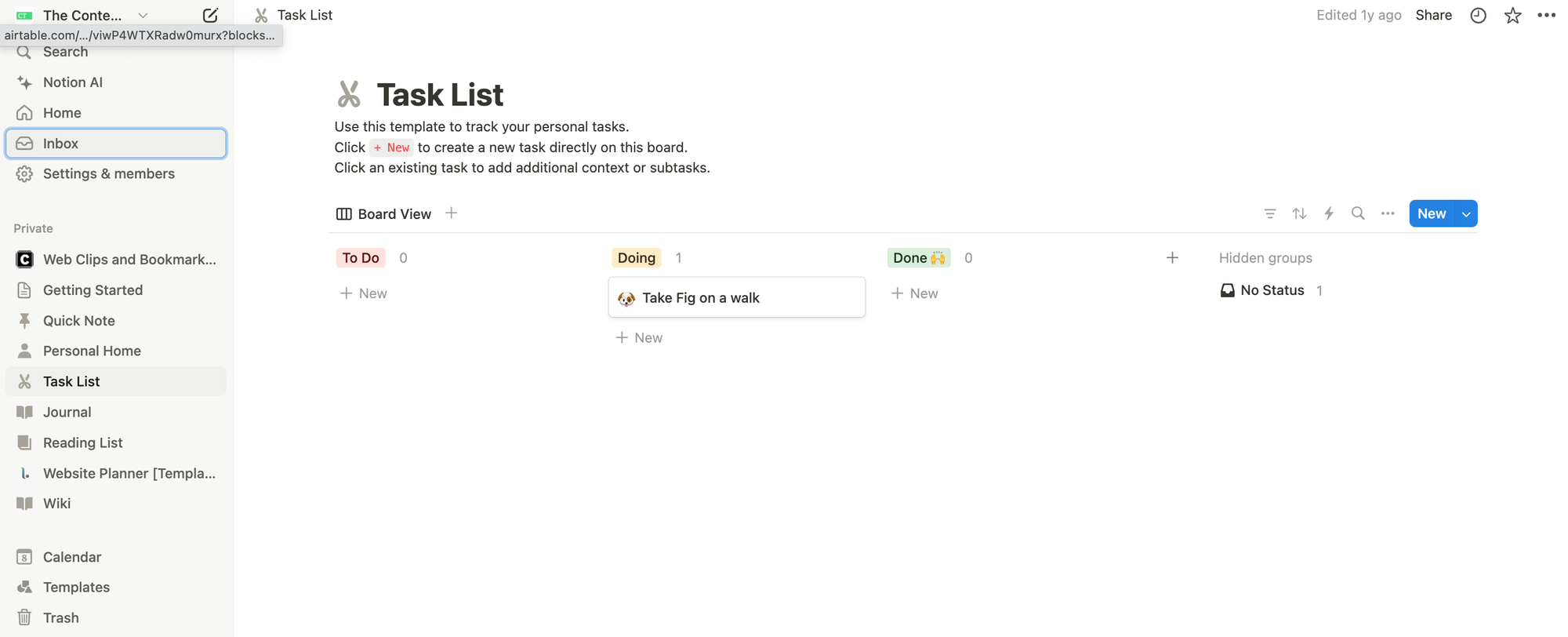Since we last spoke: Google is officially a monopoly in search, says the U.S. justice system. "No wayyyy!" says everyone else, rolling their eyes to high heaven. Do I think this ruling will change much about the practice organic search? Not really. We've been sliding away from Google centricity for the past few years (although it's still the top traffic driver online by leaps and bounds and that is unlikely to change any time soon). More about the Google monopoly ruling in this week's links.
Hugs to all the folks in the UK dealing with xenophobic jerkfaces this week. It's hard to see so much hate toward your neighbors, but it's good to see so many thousands of people rise up to push back.
August events
I'm the featured guest at two separate events on the horizon: A virtual meetup where we'll be talking about structured content and knowledge graphs and an in-person workshop here in the Twin Cities where I'll be covering content measurement:
- August 14 - 6PM Pacific time - Virtual meetup and Q&A - Content Strategy Seattle - Free!
Tackling the knowledge graph: How to structure content for an AI world
For a moment, forget the new content that AI is generating. How are the machines reading — and regurgitating — what you’ve already written? Search powered by artificial intelligence is coming for our content, from the biggest search engines to the smallest intranets. What can content strategists do to prepare?
- August 22 – 8:30 AM in-person workshop presented in partnership with the Minnesota Interactive Marketing Association at Br8kthru Consulting in Minneapolis. Breakfast tacos will be served (!!!), and brand lift will be measured.
Organic content performance for word people: How to use content analytics for editorial decision-making
In this workshop, we’ll cover how to measure the true business performance of content. We’ll explore what content metrics mean, how to create workable benchmarks, and how to use what you’ve learned from content analytics to inform future planning.
Notion review revisited: The $10B tool that bet on desktop-centricity and the left-hand nav
In the second half of 2024, we're revisiting and revising our older reviews and content. Up first for revision: Notion! Here's the original review.
The Content Technologist may receive a percentage of affiliate revenue from review links, which helps cover the costs of producing an independent publication. If this review nudged you to seriously consider purchasing this software, we encourage you to click the links on this page before you buy.
Five years ago, Notion was an up-and-comer in the connected note-taking and project management space. I compared the tool's emergent capabilities to Kendrick Lamar's artistic innovations in rap: It layered a new level of complexity on the ideas behind its predecessors. Combining the best of Google Docs, Airtable, and Trello, Notion bet that type-A digital natives would enjoy a linky notebook. At the time, I enjoyed its big ambitions, couched in a back-to-basics interface.
In the past few years, after heavily targeting Zoomer students and affiliate influencers, Notion's valuation has skyrocketed to $10B. It's one of many productivity and note taking apps attempting to be everything to everyone, loading on templates and features, ostensibly so its users will never abandon the tool for greener pastures.
In praise of the left-hand desktop nav: The most successful software innovation builds on existing user habits
For many, our work-life balance can be siloed into our devices: our phones are for play and light communications, and our laptops are for deep work. Recognizing this, Notion designed for desktop-specific use cases and left its mobile app as an afterthought. It defied late 2010s mobile-first thinking by remembering that users are smart humans who have established digital habits and experience different needs at different times. Desktop-first programs aren't going away.
Notion's biggest innovation — and general contribution to digital content design — is its embrace and evangelism of left-side navigation. Before Notion, left-hand nav was a quirky way to distinguish digitally that your brand enjoyed tables of contents and other conventions of print. As mobile-first apps became the norm, user experience design shed complex navigation across the board in favor of the single-column feed.
The rising popularity of left-hand navigation for work-oriented use cases can likely be traced back to Notion's embrace of the format. Similarly, its custom marketing illustrations commissioned from cartoonist Roman Muradov inspired all manner of SaaS marketing copycats.*

*What the copycats fail to realize is that blatantly co-opting the style of someone else's custom illustrations dulls the effect and makes your brand and product appear unoriginal. If you want the look and effect of a custom illustrator, hire a cartoonist to create custom illustrations.
Signed, the spouse of a cartoonist.
What Notion gets right: Introducing new generations to the building blocks of the web
Notion's strengths are in its no-code templates and bare-bones approach to organizing complex information. Like many contemporary note-taking tools, it forces users to write in discrete blocks of text or ordered lists, rather than the standard paragraphs of old-fashioned word processors. (Indents: who needs 'em?) It encourages users to build in links and connections rather than drag-and-drop folders. I've been deeply impressed at Notion users who build wikis and websites that look like they would be at home on a 1999 usenet... but still attract a fair amount of visitors.
It's a superpowered notebook for folks who want to be organized and build app-like project management systems but don't want to reinvent UX design. Unlike its more colorful companions, Notion keeps the out-of-the-box experience black-and-white, with only emojis to pepper in some personality.
In Reddit and consumer reviews, Notion is beloved for its complexity of formats and flexibility to connect disparate types of content at a relatively low cost compared with Airtable, Smartsheet, and more enterprise tools.

The drawbacks of Notion: It's not for aesthetes or drag-n-droppers
Notion's online detractors dislike the large investment of time required to set it up properly, along with a perceived slow time to load.
As with any tool, it has limitations, especially with collaboration: unless you're an evangelist who has deeply customized interactions and added your own flair, Notion can feel basic, bland, and unforgiving. The emojis I once described as "shabby-chic" now look quaint and dated, like Mason-jar-and-burlap weddings.
For larger teams with disparate skills, the shift to Notion is a big lift. It pares down the delightful aspects of many contemporary project management tools and emphasizes custom configuration. If not everyone on the team is into Notion, its implementation can feel like a chore. As with any centralized folder-based server system, Notion requires champions to care and maintain its structure, which will not feel intuitive to the less app savvy.
Someone on a Notion project management team will likely complain that the information gets out of hand, no matter how many new templates are added. Its AI search feels tacked on, information can get lost, and I would not recommend it for large-scale team organizational project or knowledge management.

What was Notion made for? Complex but time-bound projects
I do, however, recommend Notion for small-group collaborations on time-bound projects: if you're building the Minimum Viable Content for a new website, compiling all necessary information for a short film, or creating a centralized hub for everything you're learning in college or graduate school, Notion could be a life-saver. It's not yet a forever-tool, but an affordable stepping stone toward more enterprise mind-mapping, note-taking, and project management software.
Like Kendrick Lamar, Notion attracted haters as it grew in popularity, but its fans still hold dear its complexity and original approach.
Content tech links of the week
- So, about that antitrust ruling against Google... I'm not entirely sure what the resulting change will be, and it's unlikely searchers will abandon Google to any extent. But! If you are curious about the search engine's inner workings, from user signals to NavBoost, check out pages 13-50 of the full ruling.
- Also in Google: Growth Memo goes deep into how Query Refinements work.
- ChatGPT doesn't summarize; it just shortens text, argues Dutch architect Gerben Wierda, accompanied by significant proof. It makes sense: Natural language processing essentially translates language into math and doesn't "read," analyze, or make inferences about text like educated humans.
Specific subject-focused, RAG-trained LLMs will likely produce better summaries than the consumer AI chatbots, much like the chatbot in Weirda's post read Plato (because everybody else has read and interpreted Plato). But if you're asking the chatbots to summarize original, new ideas, it's likely it might miss your big point. - In The New Yorker, Kyle Chayka quit Spotify because it no longer helps him discover new music. I have many of the same complaints in recent years – I barely listen to podcasts and I never listen to audiobooks, so I don't understand why they're thrown at me with such aggression. I don't agree with its genre classifications and focus, no matter how cute the names are. But I am reluctant to switch because the service contains ten years of personal listening history... and my physical record collection has yet to catch up. Also I still love Wrapped.
- I don't share this writer's annoyance at the Cloud and its attendant media capture, but I love this piece about how we it's changed our culture in the past twenty years.
The Content Technologist is a newsletter and consultancy based in Minneapolis, working with clients and collaborators around the world. The entire newsletter is written and edited by Deborah Carver, independent content strategy consultant, speaker, and educator.
Advertise with us | Manage your subscription
Affiliate referrals: Ghost publishing system | Bonsai contract/invoicing | The Sample newsletter exchange referral | Writer AI Writing Assistant
Cultural recommendations / personal social: Spotify | Instagram | Letterboxd | PI.FYI
Did you read? is the assorted content at the very bottom of the email. Cultural recommendations, off-kilter thoughts, and quotes from foundational works of media theory we first read in college—all fair game for this section.
In the long tradition of Minnesota's storied political lineage, this week my home state's governor was named a vice presidential candidate, and statewide ego pride is on display.
One of the most hilarious things I've learned from seventeen years of living here is this state's outsized commitment to call out its own superiority while simultaneously insisting that its culture is modest.
Compared with Delaware, the relatively innocuous mid-Atlantic state where I grew up and where the current U.S. President is actually from, Minnesota never resists an opportunity to celebrate itself when a resident is recognized in any national capacity, and this week has been no different. I have no problem with the self-promotion! But it is funny. Because nothing about Minnesota, from Bob Dylan to Prince to Tim Walz to the "Minnesota miracle" and the various iterations of the "Minnesota model," is particularly modest or under-appreciated.
I love you, Minnesota. I really do.


